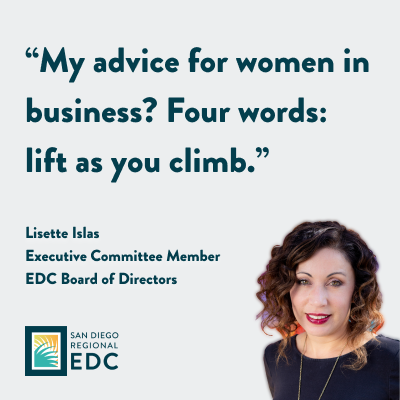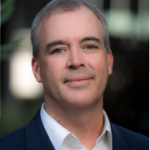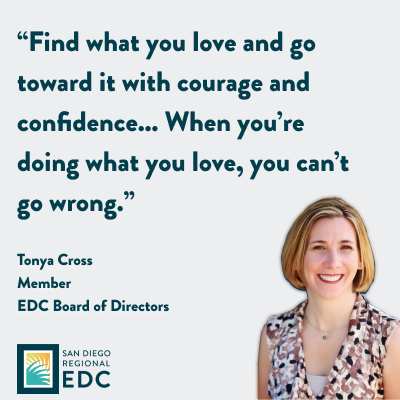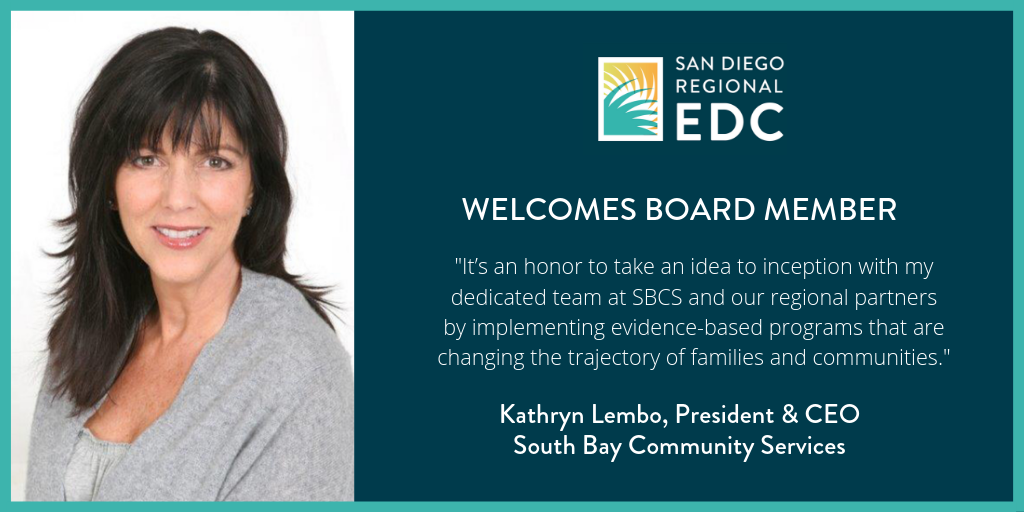 In recognition of Women’s History Month, we are publishing a series of blogs about the women behind EDC—our fearless leaders, our board members, our executive committee, our guiding lights. To close the month, we are featuring a woman that San Diego is lucky to have. The Executive Vice President and Chief Impact Officer for MAAC, a community organization that provides services and advocacy to some of the most vulnerable members of our community, and one of Mayor Todd Gloria’s Women of Distinction, Lisette Islas.
In recognition of Women’s History Month, we are publishing a series of blogs about the women behind EDC—our fearless leaders, our board members, our executive committee, our guiding lights. To close the month, we are featuring a woman that San Diego is lucky to have. The Executive Vice President and Chief Impact Officer for MAAC, a community organization that provides services and advocacy to some of the most vulnerable members of our community, and one of Mayor Todd Gloria’s Women of Distinction, Lisette Islas.
Tell us who you are and what you do. Why did you choose your career?
I am the Executive Vice President & Chief Impact Officer at MAAC, a nonprofit that works in the areas of health, education, economic development, housing and advocacy. Every year, MAAC supports more than 70,000 people across San Diego County, most of whom are facing severe economic and social hardships when they walk through our door.
I came to this work through a winding path. My intention was to become a university professor; I had dreams of teaching courses and doing research in the areas of sociology and ethnic studies. I love learning. To this day, I stay up way-too-late reading books and articles, so in my early 20’s the idea of spending life as a researcher seemed very appealing. During graduate school, I realized that I was most fulfilled when I was working directly with community members to solve problems and create new opportunities. So, I changed the plan and found a career that would place me in the midst of efforts to transform communities and uplift families. In the two decades since then, I have learned that I’m good at building partnerships across sectors, bringing unlikely groups together to find new solutions to old problems, and driving organizational and community change.
At my core, I am a mom, wife, daughter, sister, aunt, and friend who feels a sense of commitment to the community that raised me and who is trying to do my part to leave the world a little better for the people that come after me.
Other things to know about me: I grew up in Imperial Beach, am a proud Cal grad, look forward to dance parties in the living room with my little girl, and have a pretty loud (and frequent) laugh. I think in English but often dream in Spanish, so I’d say that makes me truly bilingual. Most importantly: I love to cheer for people doing good in the world.
What does your involvement in EDC mean to you?
I joined EDC just as the Inclusive Growth Initiative was taking shape. Serving on the EDC’s Executive Committee quickly became one of the top honors and joys of my workdays. The committee members all come from different industries and our world views and personal histories run the full spectrum of possibilities. That diversity of thought and experience is exactly what makes us successful as we look for new strategies to develop the economic strength of our region. We listen deeply, are always open to learning, and talk through things until we land on the right solution. Plus, we genuinely enjoy each other’s company!
When I walk away from an EDC meeting, I always feel like I am taking something with me that will make me a better leader at the office—be it a new idea, a partnership opportunity, or data that can help me make better decisions. And, just as importantly, I also feel that I have contributed to efforts that are going to meaningfully improve the lives of San Diegans. I will never meet most of the business owners and community members whose lives are touched by the work we do at EDC, but I feel immensely proud knowing that I am collaborating with a group that is genuinely committed to the betterment of San Diego and is championing strategies that will impact our region for generations to come.
What role do you see women playing across the San Diego region in the next five years?
It has been very inspiring to watch the number of women in significant leadership roles grow across San Diego over the last few years. There have been ceilings shattered in visible and not-so-visible positions, and a lot of intentionality in making board rooms and other decision-making seats much more equitable when it comes to gender. Just in recent months, we have seen the first Latina be elected to the County Board of Supervisors, a Filipina appointed to the Southwestern College Board, and a Black woman selected at as the first Chief Innovation Officer for the City of San Diego.
My stats? As the second in command at MAAC, I am the highest-ranking woman in the organization’s 55-year history, and I’m the first Latina appointed to the EDC’s Executive Committee.
Though we have made significant strides, we can’t get comfortable. Among the many things we have learned since March 2020 is that all the gains we have made towards gender equity at home and in the workplace can quickly disappear. In the last 12 months, across our country, 2.3 million women have left the workforce. The story is not much brighter for those that remain employed: men have been promoted three times more than women during the pandemic. And, of course, sustaining pay inequity, with women earning 82 cents on the dollar compared to men, and that number drops to 70 cents for working moms. There is work to be done: women are hold a disproportionate number of low-wage jobs; there aren’t sufficient affordable, high-quality childcare options; and retirement savings are virtually nonexistent for one in five women. As a region, we have to wrap our arms around some really complex issues. EDC’s work provides very important tools to do so.
Share with us your favorite quote.
“If you are always trying to be normal, you will never know how amazing you can be.” –Maya Angelou
This quote sits in a frame, in my office at work so I don’t forget to bring my full self to any situation – including all the uncommon parts of my personal and work history. I’ve learned not to hide them because they are what gives me the unique leadership perspective I have today.
What advice do you have for women in business?
Growing up, my mom often told me that there will always be people that have more than us and others who have less. I think about that often when I look back at my career, taking stock of what I’ve done and what I have yet to accomplish. There is always someone that has gone before me, that I can learn from and be inspired by. Likewise, there is someone that is following in my footsteps, who can benefit from the lessons I’ve gained and things I’ve experienced.
So how does that tie into my advice for women in business? Four words: lift as you climb.
https://twitter.com/lisetteislas1/status/1375890777839083521?s=20
Follow along with Lisette on Twitter: @lisetteislas1

 In recognition of Women’s History Month, we are publishing a series of blogs about the women behind EDC—our fearless leaders, our board members, our executive committee, our guiding lights. To close the month, we are featuring a woman that San Diego is lucky to have. The Executive Vice President and Chief Impact Officer for
In recognition of Women’s History Month, we are publishing a series of blogs about the women behind EDC—our fearless leaders, our board members, our executive committee, our guiding lights. To close the month, we are featuring a woman that San Diego is lucky to have. The Executive Vice President and Chief Impact Officer for  In recognition of Women’s History Month, we are publishing a series of blogs about the women behind EDC—our fearless leaders, our board members, our executive committee, our guiding lights. Below you’ll learn more about Tonya Cross, SVP of people and corporate operations at
In recognition of Women’s History Month, we are publishing a series of blogs about the women behind EDC—our fearless leaders, our board members, our executive committee, our guiding lights. Below you’ll learn more about Tonya Cross, SVP of people and corporate operations at 